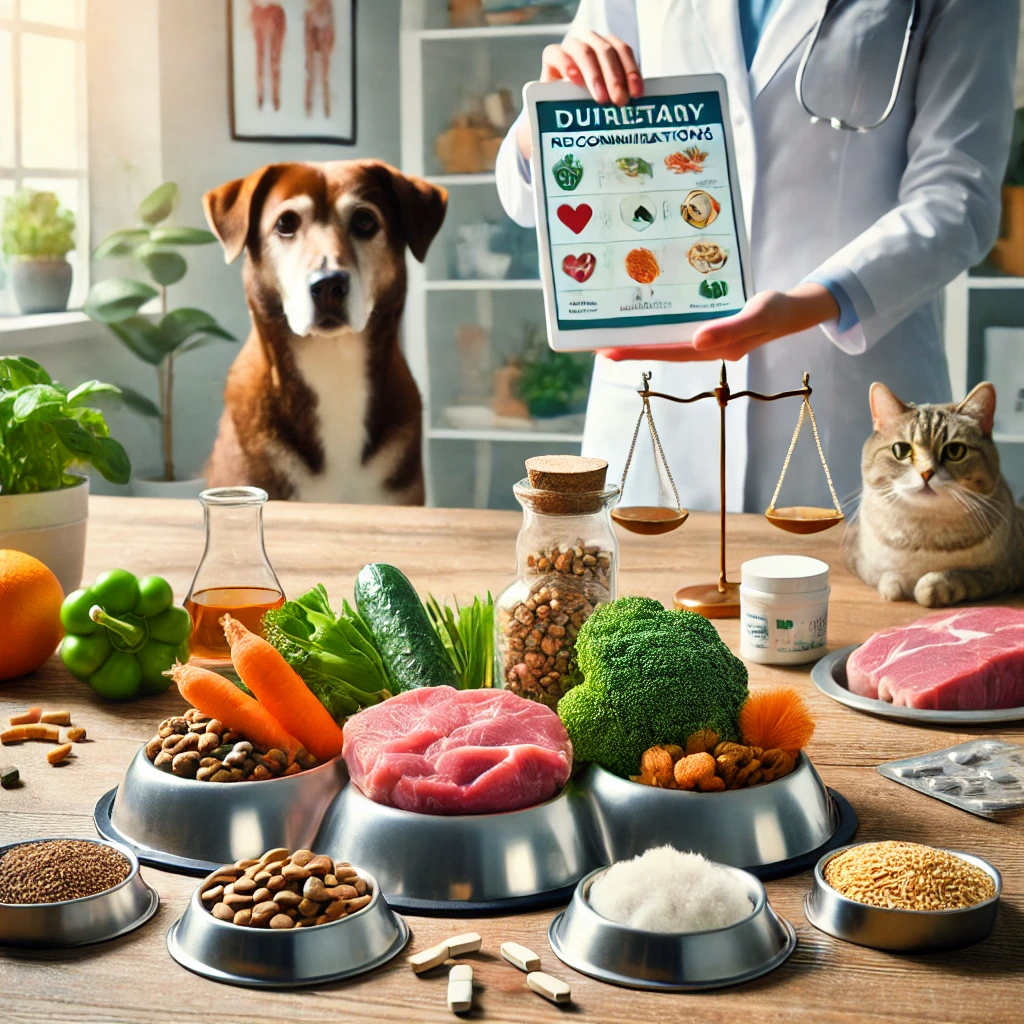When it comes to our pets, ensuring they receive both the proper nutrition and effective medications is vital for their health and happiness. Many pet owners focus on either food or medication but might not realize how the two interact. Nutritional choices can actually influence how well medications work, whether for managing chronic conditions or supporting overall wellness. This article explores the critical relationship between cadet dog food and medicines for pets, providing tips and insights to help you make informed decisions for your furry family members.
How Nutrition Affects Medication Effectiveness in Pets
When a pet is on medication, diet can have a significant impact on how well the treatment works. Certain nutrients or food types can either improve or hinder a medication’s absorption and effectiveness. For instance, some medicines work best when taken with food, while others might interact negatively with specific nutrients. Let’s break down the role nutrition plays in a pet’s medication plan and how choosing high-quality pet food, like Cadet Dog Food, can make a difference.
1. High-Quality Protein Sources and Medication Absorption
Proteins are essential building blocks for muscle, tissue repair, and immune function in pets. High-quality protein sources, found in premium pet foods like Cadet Dog Food, provide the nutrients pets need to support their body’s natural healing processes. Proteins also impact how well medications are absorbed. Fat-soluble medicines, for instance, require some level of dietary fat for optimal absorption. Ensuring a balanced intake of protein and fats in your pet’s diet can enhance the effectiveness of many medications.
For example, a pet on anti-inflammatory medications may benefit from a high-protein diet as it aids in tissue recovery. Pairing medications with a balanced diet helps ensure they can work effectively within the pet’s body.
2. Nutrient Interactions with Common Medications
Each nutrient, from vitamins to minerals, plays a unique role in your pet’s health. However, certain nutrients can also interfere with medication efficacy. Here are some everyday interactions:
- Calcium and Antibiotics: Calcium-rich foods can reduce the effectiveness of specific antibiotics by interfering with absorption. When administering antibiotics, it’s important to space out calcium intake or consult with a vet about the ideal feeding schedule.
- Vitamin K and Blood Thinners: Pets on blood thinners may need to monitor their vitamin K intake. Excessive vitamin K can reduce the effectiveness of blood-thinning medications. Managing their diet to prevent an overload of vitamin K is crucial.
- Fiber and Thyroid Medications: High-fiber foods can interfere with the absorption of thyroid medications. If your pet requires a high-fiber diet, it’s essential to consult with your vet on timing medication dosages around meals.
Understanding these potential interactions is essential for pet owners who want to ensure their pet’s diet supports, rather than hinders, the effects of medications.
3. The Role of Supplements in Enhancing Pet Health
Supplements are often added to pets’ diets to boost their overall health, but they can also play a role in medication effectiveness. Angel Eyes for Dogs, for instance, is a popular supplement aimed at reducing tear stains. Many pet owners use supplements to address specific issues, but it’s essential to keep in mind how these may interact with other medications or treatments your pet is receiving.
- Joint Supplements and Anti-Inflammatories: Joint health supplements containing glucosamine or chondroitin are commonly used in aging pets, particularly those with arthritis. These can work well with anti-inflammatory medications to improve mobility but require balanced dosages.
- Probiotics with Antibiotics: Pets on antibiotics often experience digestive upset. Adding probiotics to their diet can help restore gut flora balance, though timing is key. Give probiotics at a different time of day than antibiotics for maximum benefit.
Being mindful of these interactions can help pet owners make the most of both supplements and medications, ensuring their pet receives optimal care.
4. Tips for Feeding Pets on Medication
Managing a pet’s diet when they are on medication can be a bit tricky, but with the right tips, it can become a simple routine:
- Follow a Consistent Feeding Schedule: Consistency helps maintain stable levels of medication in the bloodstream, especially for pets on long-term medications. Feed your pet at the same times daily and administer medication as advised.
- Choose High-Quality, Nutritious Food: Opt for quality pet food like Cadet Dog Food, which contains balanced nutrients that support overall health and assist the body in processing medications efficiently.
- Consult Your Vet About Timing: Some medications work best on an empty stomach, while others require food. Work with your vet to determine the ideal feeding and medication schedule for your pet.
5. Consulting with Your Veterinarian: The Key to Success
Each pet is unique, and their dietary and medication needs can vary. It’s always best to work closely with your veterinarian when managing both diet and medications. Regular vet consultations can help address any side effects, potential nutrient deficiencies, or adverse interactions between medications and food. Your vet can provide you with a tailored feeding plan that optimizes both nutrition and medication for your pet’s unique health profile.
Frequently Asked Questions (FAQs)
1. Can I give supplements like Angel Eyes for Dogs if my pet is already on medication?
- Yes, but it’s essential to consult your veterinarian first. Some supplements may interact with medications, so having professional guidance is crucial to avoid any potential issues.
2. Is it safe to feed my pet high-protein food like Cadet Dog Food if they’re on medication?
- Generally, high-protein diets can support medication absorption and effectiveness, but always consult with your vet, especially if your pet is on medications that may interact with specific nutrients.
3. How does fiber in my pet’s diet affect medication absorption?
- Fiber can interfere with the absorption of certain medications, such as those for thyroid conditions. It’s best to time fiber-rich meals around medication schedules as recommended by your vet.
4. Can I change my pet’s diet while they are on medication?
- Changing a pet’s diet during medication can impact how the medication is absorbed. It’s recommended to consult with your veterinarian before making any significant dietary changes.
5. What should I do if my pet experiences side effects from their medication?
- If your pet experiences side effects, contact your veterinarian immediately. Adjusting diet, timing, or type of food might help, but only make changes under a vet’s supervision.
Conclusion
The relationship between nutrition and medication is a key factor in managing your pet’s health. Choosing a balanced, high-quality diet, like Cadet Dog Food, and being mindful of supplements like Angel Eyes for Dogs can make a noticeable difference in how medications work within your pet’s body. By working closely with your veterinarian, you can create a well-rounded plan that ensures your pet receives both the nutritional and medicinal support they need to lead a healthy, happy life.
Taking an informed approach to your pet’s diet and medication helps you provide the best care possible, improving both treatment outcomes and overall quality of life.
Read More: Feeding Felines Right: Exploration of Temptations Cat Food Offerings



